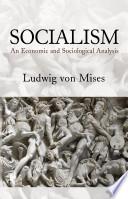
“Every advocate of the welfare state and of planning is a potential dictator.”
Socialism (1922), Epilogue (1947)
Context: In fact, however, the supporters of the welfare state are utterly anti-social and intolerant zealots. For their ideology tacitly implies that the government will exactly execute what they themselves deem right and beneficial. They entirely disregard the possibility that there could arise disagreement with regard to the question of what is right and expedient and what is not. They advocate enlightened despotism, but they are convinced that the enlightened despot will in every detail comply with their own opinion concerning the measures to be adopted. They favour planning, but what they have in mind is exclusively their own plan, not those of other people. They want to exterminate all opponents, that is, all those who disagree with them. They are utterly intolerant and are not prepared to allow any discussion. Every advocate of the welfare state and of planning is a potential dictator. What he plans is to deprive all other men of all their rights, and to establish his own and his friends' unrestricted omnipotence. He refuses to convince his fellow-citizens. He prefers to "liquidate" them. He scorns the "bourgeois" society that worships law and legal procedure. He himself worships violence and bloodshed.
